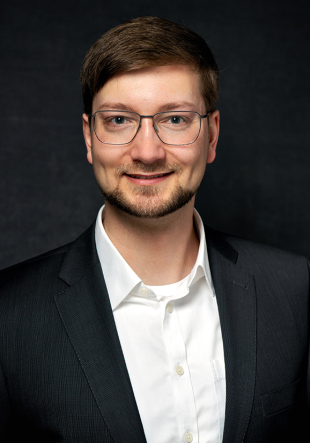Funnel formation control for multi-agent systems with application to the formation flight of satellites
Duration: 2024 to 2027
Total funding volume: 241,775 euros
University sponsors: 241,775 euros
Funded by: German Research Foundation (DFG)
The aim of the proposed research project is the development, numerical implementation and analysis of the conceptually novel decentralised control methodology Funnel Formation Control (FFC) for multi-agent systems. This method is able to guarantee that the distances between two agents remain within a given field. In addition, collision avoidance and synchronisation of speeds with predefined error bounds is achieved in the context of so-called "flocking". Heterogeneous agents with non-linear dynamics are to be considered as a special challenge. It is explicitly not assumed that the dynamics and initial states of the individual agents are known, apart from structural information such as the order of the underlying differential equation. In order to achieve these ambitious goals, methods from funnel control are used, which is a current field of research in control engineering and mathematical systems theory and bridges the gap between theory and application. The funnel controller guarantees the temporal evolution of the output variables within a given field. This allows a controller design that is independent of the specific system parameters and therefore has inherent robustness properties. The desired control method consists of three components: 1) In the first formation control component, the desired position of each agent in the formation is constructed geometrically and used as a reference signal in a current funnel control method. The FFC constructed in this way ensures that each agent reaches its desired position while complying with specified restrictions. Furthermore, an input filter is used to avoid the measurement of velocities. 2) In a second step, the FFC is extended by an additional controller component that achieves collision avoidance. This component is again based on funnel control techniques. The feasibility and robustness of this combination will be rigorously demonstrated. 3) In the last step, the collision-avoiding FFC is combined with a so-called edge-wise funnel coupling law, which achieves a synchronisation of the velocities of the agents with given error bounds. It is expected that in this way the ultimate goal of "flocking" can be achieved with predetermined behaviour of the agents. A feasibility study is to be carried out on the basis of the formation flight of satellites, whereby each satellite is described by a non-linear differential equation of the second order. The performance and implementability of the developed control methods will be continuously validated by simulative analyses. This supports the selection of suitable controller parameters and thus ensures regular feedback between theory and numerical practice.

